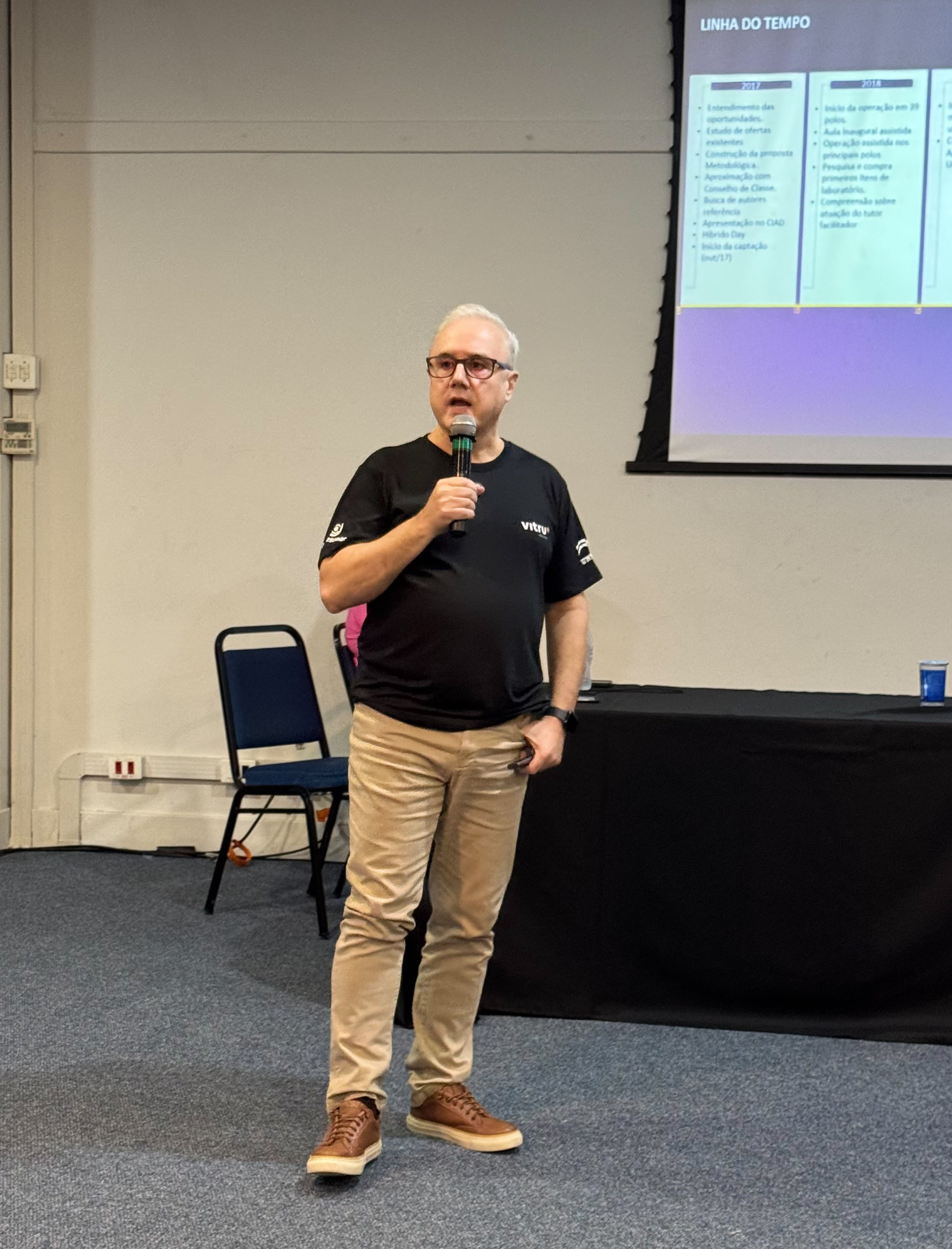Adaptation of Educational Technologies to Cultural Diversity is Vitru’s Focus at the 30th CIAED
• Education
To be transformative, learning must adapt to the diverse realities of Brazilian students — from rural areas to urban peripheries, from capitals to inland regions
In a country as culturally rich and varied as Brazil, education experts emphasize that meaningful learning cannot thrive without respecting students’ multiple cultures, contexts, and life paths. However, the digital transformation reshaping higher education often overlooks these differences. According to Fabrício Ricardo Lazilha, Director of Academic EAD Planning at Vitru Educação, educational technologies — such as virtual reality, artificial intelligence, and adaptive learning — have advanced rapidly. Yet the current challenge, he argues, lies in aligning these tools with students’ cultural and economic realities.
Speaking at the 30th International ABED Congress on Distance Education (CIAED), Lazilha stated:
“Innovation isn’t just about creating something new; it’s about breaking away from outdated systems and introducing more inclusive ways of teaching and learning.”
At Vitru Educação, technology plays a pivotal role in democratizing knowledge.
“This is why we’ve integrated virtual laboratories into our pedagogical strategy. These interactive environments simulate hands-on experiences with high fidelity, transforming learning — especially in regions where physical labs are inaccessible. They’re not just alternatives; they’re tools of inclusion,” he explained.
Integrated into the Virtual Learning Environment (VLE), these labs allow students nationwide to explore complex content in fields like Chemistry, Physics, Biology, and healthcare safely and autonomously.
“This approach respects each student’s pace and, above all, expands access to scientific knowledge,” Lazilha added.
Another innovation gaining momentum is immersive professional environments. These digital spaces replicate real workplaces using virtual reality, augmented reality, simulations, and online platforms.
“They enable interactions and experiences comparable to physical settings, letting professionals collaborate, perform tasks, and learn virtually,” he noted.
By adopting such technologies, higher education aligns more closely with market demands, offering practical, contextualized training for students balancing theory and practice early in their careers.
For Lazilha, educational innovation goes beyond adopting tools:
“We need personalized, adaptive learning that embraces diverse interests and prepares students for an evolving job market. Today’s education must create flexible frameworks attuned to social, economic, and cultural shifts. Technology should act as a means, not an end. To be truly transformative, it must adapt to the realities of all Brazilian students — from rural areas to urban peripheries, from capitals to inland regions.”New chat
This website uses cookies to offer you a better browsing experience. To continue using this website you agree with the use of cookies and with our Privacy Policy.